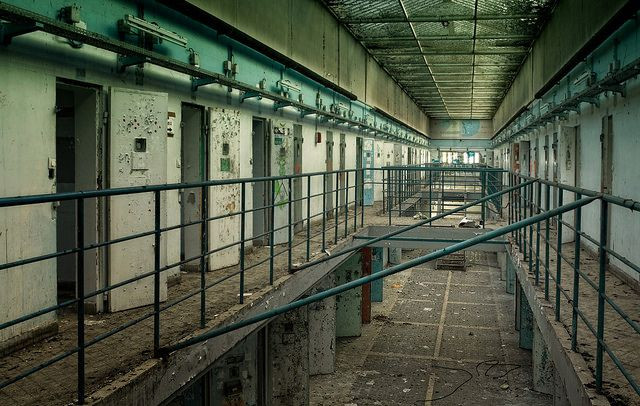California Prison Inspection Uncovers Unsanitary Conditions, Dozens Of Health Rule Violations

SACRAMENTO, Calif. (Reuters) - An inspection of a controversial California prison revealed unsanitary conditions, from a lack of hot water and incorrect storage of raw food to rodent droppings, a state report shows.
The report on the California Rehabilitation Center in Norco, obtained by Reuters on Wednesday under a Public Records Act request, exposed dozens of violations of health rules.
Inspectors described wastewater from leaky sewer pipes flowing from a basement ceiling to the outside.
There was no hot water in bathroom sinks, and dishwashers did not heat pots and pans to the temperatures needed to ensure sanitation, the report said. Inspectors found cockroach infestations and showed pictures of rodent droppings.
In the kitchen, raw chicken was stored above cooked halal chicken for Muslim inmates, raising the risk that the raw meat could drip onto the cooked food and contaminate it.
State Senator Loni Hancock on Tuesday called for the closure of the facility, which is about 100 years old.
"The report is shocking, talking about rats and cockroaches and standing water, wastewater not draining," Hancock said in an interview about the Southern California prison.
It opened in 1928 as a lakeside resort, and was a naval hospital before becoming a prison.
The 109-page report was prepared in a regular review of prison facilities "to ensure the health and safety of inmate workers and staff," environmental health services chief Mark Jeude said in an accompanying letter.
A corrections department spokeswoman was not immediately available to comment on Wednesday, but said on Tuesday the state had made efforts to improve the situation.
"CDCR has taken numerous steps to improve conditions, including fixing leaks, patching holes and renovating restrooms and showers," Deborah Hoffman said in an email. "CDCR will continue to consider all options to address the facility's infrastructure issues."
The prison with 2,400 inmates remains open despite earlier plans to close it, because moving prisoners to another facility would cause overcrowding and infringe a federal court order, Hoffman said.
(Reporting by Sharon Bernstein; Editing by Clarence Fernandez)



























